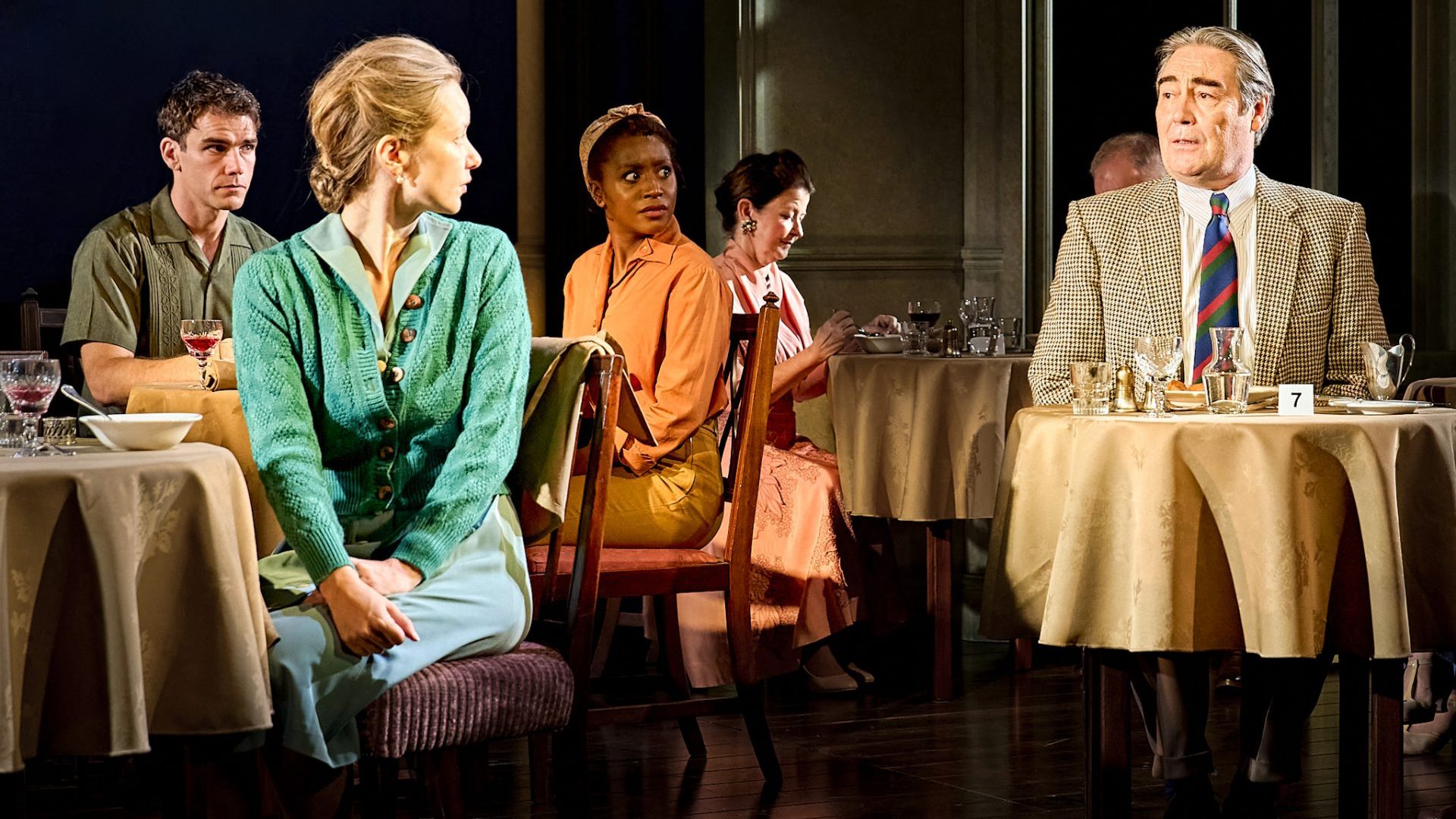At a time when our values, what it is we stand for and sense of identity are being tested as never before, a double helping of Terence Rattigan certainly doesn’t go amiss. This quintessentially British playwright has gone in and out of fashion over the years, but we keep coming back to his works because they mainline into the human condition, have a lot to say about what kind of people we are and are also brilliantly written.
Summer 1954 brings two of his best-loved plays together – Table Number Seven (people tend to think of it as Separate Tables) and The Browning Version. Their shared message, I would say, is that the British, while often screwed up and seldom, if ever, saying what they are thinking, are ultimately not such bad people and take particular exception to being pushed around and bullied.
Both star Nathaniel Parker and serve as testimony to his tremendous range and depth as an actor. In Table Number Seven he plays Major Pollock, a pompous old fraud living in a Bournemouth hotel who has lied about his rank, education and family background, but has somehow won the affections of the young and timid Sybil (Alexandra Dowling).
Alas, Sybil’s mother – played as pure arsenic in old lace by the magnificent Sian Phillips – chances upon an item in the local paper about how the major has been importuning men on the seafront. In the original, staged in the 1950s, Rattigan, conscious there was then a limit to how far he could push his audiences, bottled it and made a woman the subject of the major’s unwelcome advances.
It’s refreshing to see what Rattigan was really getting at spelt out and it adds tremendously to the power of the piece. If you haven’t seen the play before, I won’t spell out how his fellow guests at the hotel react to Mrs Railton-Bell’s moral crusade to get the major thrown out, but let’s just mark it down as a victory to humanity and Sybil’s finest hour.
Parker returns after the interval as Andrew Crocker-Harris, the stuffy old schoolmaster stuck in a joyless marriage to Millie (Lolita Chakrabarti) and once again he offers a masterclass in misery, but, eventually, pushed around too much, stands up for himself.
This is theatre that’s good for the soul, deftly and sensitively directed by James Dacre, and I urge anyone despairing about the state of humanity right now to make the effort to go and see it.
Chichester Festival Theatre, playing now to January 25; Richmond Theatre, London, from January 27 to February 1; Cheltenham Everyman Theatre, February 3 – 8; Oxford Playhouse February 11 – 15












